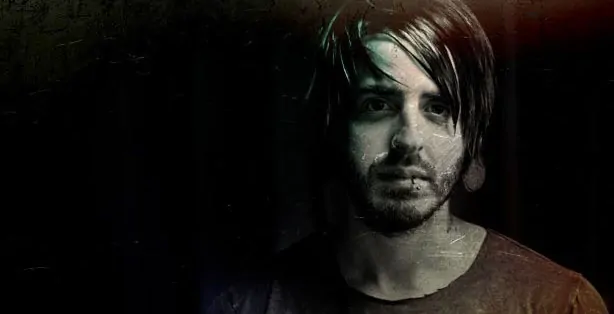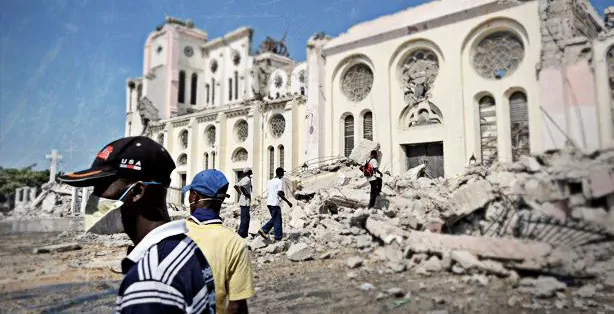
In early December 2009, activist Brandt Russo announced he would not eat a single thing until he had raised $15,500 for starving children around the world. About a week later, thanks to word-of-mouth on Twitter, he exceeded his goal. Yet despite the success of his mission, Russo had doubts. “About fifteen hours after such accomplishments,” he wrote on his blog, “I always wonder if the truth of the matter stuck, or folks kind of just move on.”
In today’s world of here-today-gone-tomorrow fads, worthy causes can be quickly forgotten. A few years ago it seemed like the entire world stood united to call on the end of the genocide in Darfur. Last summer people turned their Twitter avatars green to support the Iranian protesters. Neither one gets mentioned in the news anymore. Even interest in the current relief effort in Haiti is slowly diminishing. “Day after day passed [in Haiti],” Russo observes, “and the problem remained just as critical, but we slowly began to lose interest. Not that we aren’t still heartbroken, but I think its has a lot to say about humanity and the fact that if we aren’t continually reminding ourselves that there are more pains than our own, we will never see them; and if we do, they will only affect us until we are distracted with our own problems.”
Russo knew he could no longer be distracted after hearing stories from his friend Ryan Alexander of the nonprofit group Not Fashionable. Russo explains: “He takes trips to Africa to provide the children with parasite de-worming medication and to teach them sustainable farming techniques, etc. He was telling me about they things they do, but the fact that they can’t get decent funding, trips were put on hold.” One day while Russo was thinking about Not Fashionable’s dilemma, a thought occurred to him: he could starve for the children.
“Gandhi said that there is enough for everyone’s need, but not enough for everyone’s greed,” Russo says. “There are major problems in the world, and it’s time we start collectively knocking them out one by one. We can’t continue to sit around knowing that these diseases are, for the most part, preventable. We are all very capable to make a change. For the price of a Starbucks latte, you could de-worm an entire school. I just figured extreme times called for extreme measures.”
And so, on Dec. 3, 2009, Operation Starvation began. And thanks to social media, it quickly got attention. “As soon as I started tweeting about it,” Russo says, “people came out of the woodworks. Some of my better-known friends decided to start tweeting about it and urged their Twitter followers to do the same.” Some of those friends included Disney Channel star Demi Lovato, Lauren Barlow of The Barlow Girls, Tyler James Williams from the show Everybody Hates Chris, Mark Stuart of Audio Adrenaline, and The Flobots.
Some of Operation Starvation’s biggest supporters were young people. On his blog, Russo shares an email he received about a 13-year-old girl living in poverty who felt compelled to raise money. “Jesus said it best,” Russo reflects, “you can’t enter the kingdom of Heaven unless you’re like a little child. They are so pure at heart. They realized that children, much like them, die every day and that’s not OK.” Unfortunately, not everyone was so supportive. On day two, Russo received a picture of a cheeseburger from some one calling Operation Starvation a “‘poser fast.” Russo explains it’s just a part of the so-called “Christian Worldview” many adults have adopted. “[It’s an] airplane theology that tells us to put on our own air masks before we assist anyone else,” he says. “Our wisdom has become one of our greatest enemies when it comes to the simple truths of the Gospel.”
After nine days with no food—by day six, Russo wrote that he was so hungry he could “eat dirt”—Operation Starvation raised more than $15,500. While grateful for the success, he couldn’t help but be bothered by one thing: out of all the people he talked to, only 330 people made a donation. Most of the Christians he spoke to just said they would ‘pray about it.’ “I think that’s the problem with the Christian culture these days,” Russo says. “We seem to do one of three things. We either see the problem as too big and decide nothing we give will be enough and just walk away. We decide to over-spiritualize a situation in a way that ‘washes your hands’ of the situation, or we give what we can and pray that God multiplies it.”
So now the question is, what’s next? Will the truth of the matter stick, or will folks move on?
“It seems like every decade or so,” Russo says, “we are faced with new social atrocities that tear apart Gods plan of equality, and the war for justice wages on. It’s our job to not only make conscious decisions that are lasting, but also raise up the coming generations in ways that will generate lasting change.”
The Bible says faith without deeds is dead. In times of darkness, the world looks to us, as ambassadors of Christ, to be the proverbial light of the world. “We may not end world hunger,” Russo says, “or find the prescription to end the wars of this world, but we can do what we can. The first hunger strike may be over, and for some part forgotten about, but the change that is taking place in our heads and hearts has only begun. Now it’s up to you.”





















